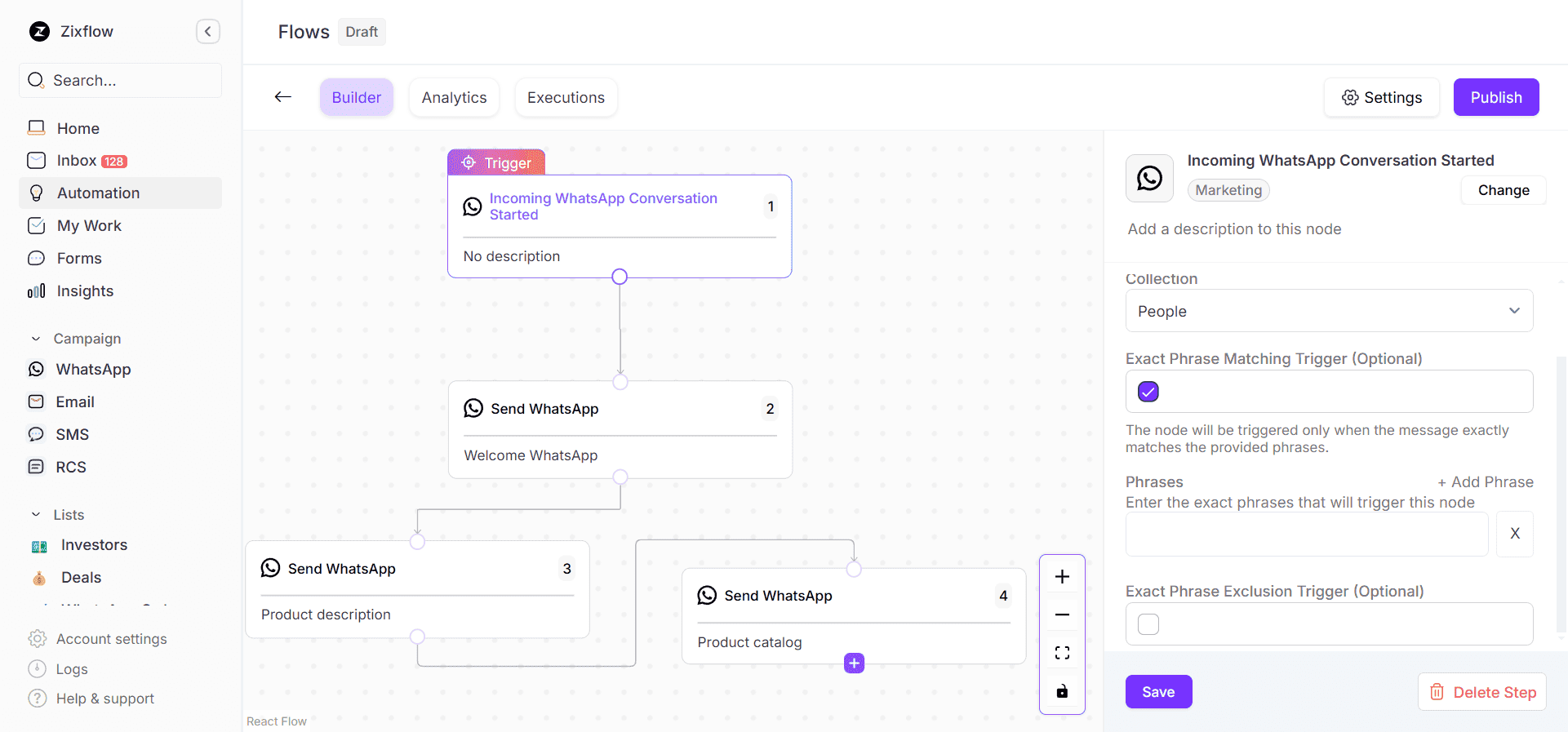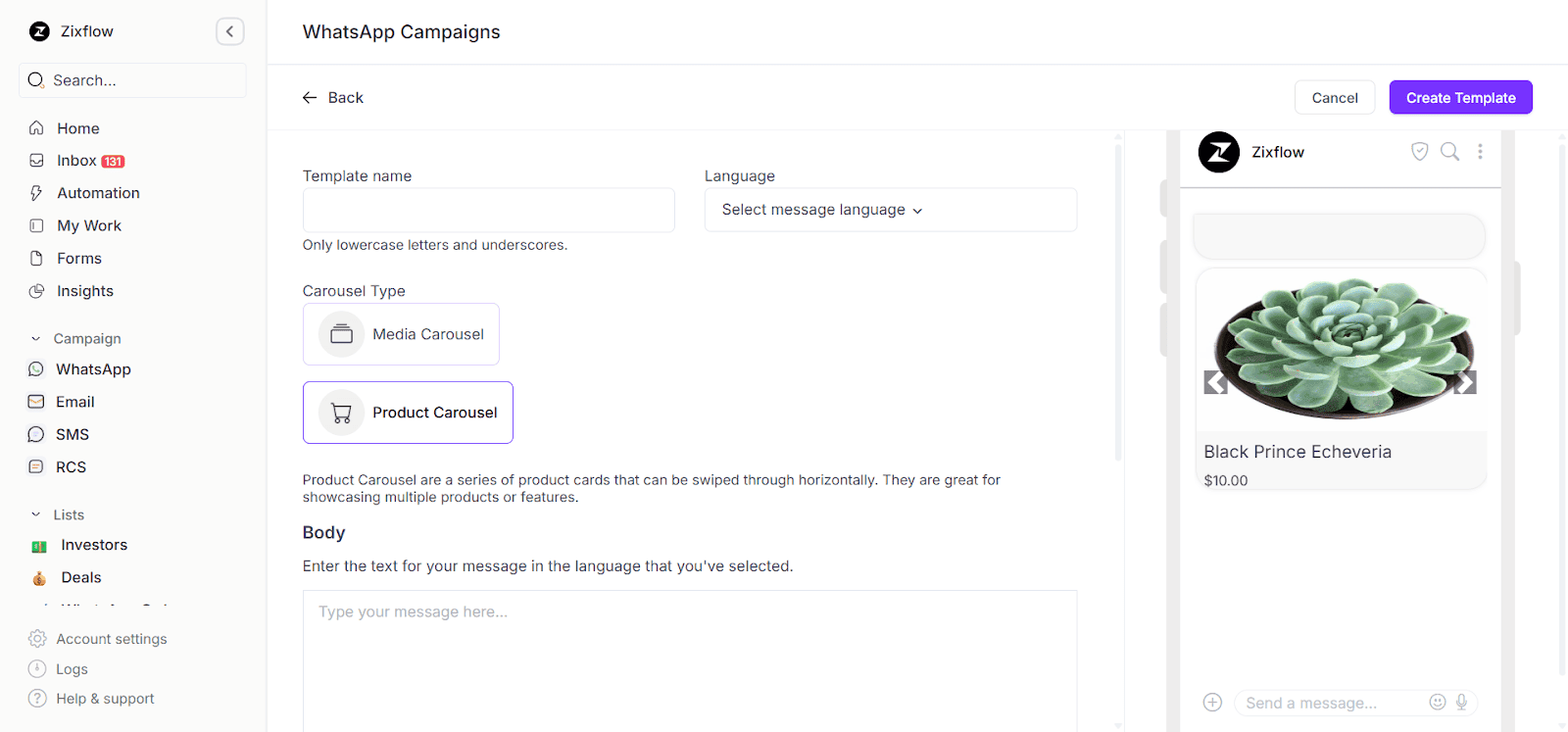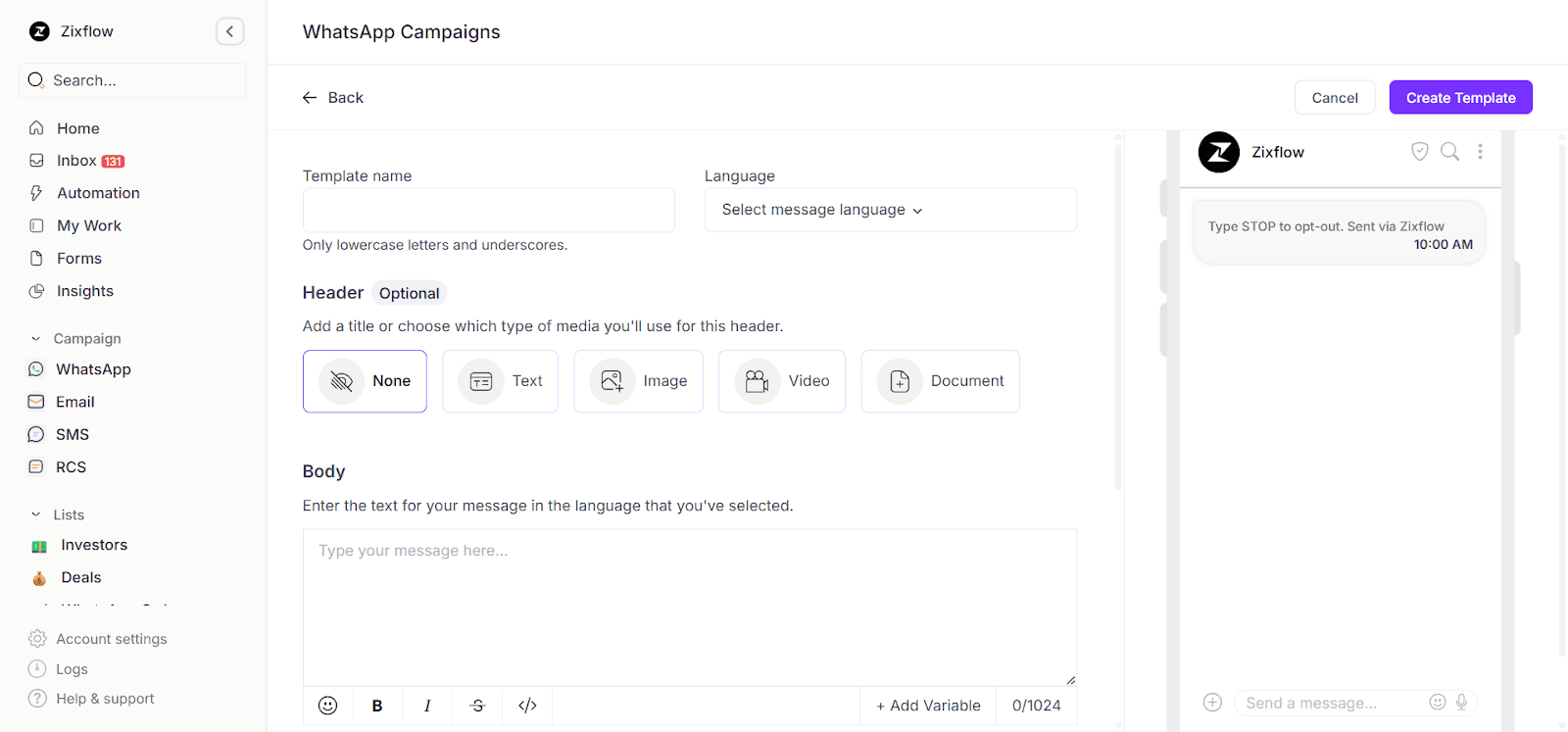WhatsApp Business Trends: Should You Be Worried For WhatsApp?

Have you recently implemented WhatsApp Business into your marketing strategy and are wondering whether it is a viable choice for the long run?
Well, the WhatsApp Business Platform has become a go-to choice for millions of businesses globally. Jumping into popularity in the early 2010s, WhatsApp has introduced numerous outstanding features to ensure brands can successfully contact their customers.
As we are heading to AI-powered communication, the future of digital conversations is constantly evolving. In this situation, it is always better to have a plan for the future should you need to pivot to a different strategy based on the developments.
However, WhatsApp Business is still going strong and by enhancing its current capabilities, it is poised to stay one of the most used communication apps in the world. With that said, to have a clear idea of what the future looks like for WhatsApp Business, I will explore some of the trends emerging in the communication industry.
So, without wasting any more time, let’s jump straight into it!
What is WhatsApp Business and how big is its scope?
WhatsApp Business Platform is a subset of the overall WhatsApp platform with a focus on business communication. It is divided into two parts; the WhatsApp Business App and the WhatsApp Business API, each offering a variety of functionalities to let companies interact with their customers.
With downloads in the 50 million range, brands are continuously utilizing WhatsApp to improve customer engagement and drive revenue.
The WhatsApp Business App is designed for small businesses and solopreneurs who are just starting with their business journeys. It gives access to the necessary features that a growing business needs to engage potential customers before converting them into paying ones.
Although useful for small businesses, the Business App has various limitations that make it not a great pick for medium or large-scale businesses. For them WhatsApp launched the WhatsApp Business API, giving them complete control of your WhatsApp communication and automating repetitive tasks to save valuable time.
This goes to show that WhatsApp has solidified its place in the Business communication space. And with its recent innovations in AI messaging, WhatsApp is becoming a platform that any growing or grown business cannot simply ignore.
Stay ahead of WhatsApp Business trends with Zixflow.
Zixflow keeps your communication strategy future-proof with the latest automation and engagement tools to help you grow without worries.
Book a DemoHaving said that, here are some of the emerging trends for WhatsApp Business:
WhatsApp Business trends for the future
Given below are some of the market trends revolving around the WhatsApp Business Platform and how businesses can leverage this information to their advantage:
Increasing demand for conversational AI
These days, AI is all the charm. No matter if you are booking an appointment, submitting a support ticket, or placing an order, customers expect quick replies from businesses around the clock. This is something that is not feasible for many businesses.
To handle this issue, WhatsApp allows you to automatically respond to customers’ inquiries with the help of chatbots. These chatbots are powered with AI engines to provide relevant information to customers and close common queries by themselves, without needing any human assistance.
In addition to offering information, WhatsApp chatbots enable customers to complete simple processes like booking an appointment, tracking shipping status, and learning how to make the most of their purchases.
In fact, in 2025, the industry for AI-powered conversations is anticipated to grow to $17.05 billion in 2025 and is expected to reach $49.80 billion by 2031, expanding at a cumulative average rate of 19.6%. This statistic goes to show that the future of customer communication is very much shaped by conversational AI to streamline conversations across various sectors, namely e-commerce, healthcare, real estate, and more.
Integrating a chatbot can also lower the expenses you have to incur for your customer support efforts. This is because the bot can manage most of the common issues while only the more complex ones will be forwarded to your support team.
With more advancements in chatbot technology, more and more businesses are using it to automate their WhatsApp customer support for repetitive activities such as scheduling meetings, obtaining data about customers, and onboarding new customers.
With the help of WhatsApp automation tools, you can effectively set up a chatbot to automate customer interactions and redundant operations. Tools like Zixflow, give you all the required capabilities to not only automate your communication but also monitor how well your efforts are going for continuous improvement.

Deep integrations with business tools
WhatsApp has moved on from a simple messaging app. It is becoming part of a bigger ecosystem of business tools and customer relationship management (CRM) software.
No longer are businesses only using WhatsApp alone. Rather they can plug WhatsApp into other powerful systems like CRMs, customer support platforms, and helpdesks using WhatsApp tools like Zixflow. When WhatsApp is integrated so deeply, businesses will be able to get rich data on their customers and set up automated workflows all in WhatsApp.
Some of the newest capabilities include real-time notifications, more specific tracking of leads, automated follow-ups, and a host of other features that could see WhatsApp being used more as a sales and retention tool as opposed to just a support tool. Connecting messaging and back-office processes can allow you to nurture leads and keep their customers even more effectively.
The rise of click-to-chat commerce
Another important trend is the expansion of “click-to-chat” commerce, where Meta is actively promoting advertising models that facilitate social media advertising to open direct conversations in WhatsApp.
You can launch targeted campaigns on platforms like Facebook and Instagram with ads that allow your users to start a chat instantly, rather than being directed to a landing page. The immediacy and human interaction in this process typically produce higher conversion rates since customers have the ability to connect with your company or automated assistant.
When combined with WhatsApp's in-chat commerce features like payment options and product catalogs, "click-to-chat" is fueling a rapid growth of conversational commerce, combining advertising, sales, and customer service, in a single experience.
Adapt to WhatsApp changes without missing a beat.
Use Zixflow to build agile campaigns that evolve with platform changes, helping you stay compliant, scalable, and competitive.
Try Out TodayBrands are leveraging WhatsApp’s rich messaging and interactive elements
WhatsApp is also expanding the messaging experience with rich media and interactive elements that allow for more engaging and dynamic chats. The product catalog feature makes it easy for users to browse items and purchase directly in the chat, offering a seamless shopping experience.
All of the new quick reply buttons simplify interaction by reducing the number of steps that are needed to respond to something, allowing for easier and quicker communication. List messages along with new carousel formats enable you to deliver personalized experiences in richer ways by presenting multiple products or options.
With Zixflow, you can craft tailor carousel messages for promoting multiple products within the same message, without redirecting users to an external site.

In addition to that, embedded, interactive WhatsApp forms in chats allow you to easily capture leads or receive customer feedback. All of these capabilities together have the potential to transform WhatsApp chats into mini e-commerce experiences for a mobile-first consumer mindset.
So, if you are an e-commerce brand looking for a personalized communication channel to drive customer engagement, then WhatsApp is the perfect solution for you.
WhatsApp is a trusted customer support channel
WhatsApp is no longer just a messenger app. It is quickly evolving into an important force in how brands transform support and convert sales. Meta is making a big push to establish it as a center for customer service and conversational commerce, which will help you work more efficiently to give consumers faster and more personalized experiences.
Brands across the globe are already using WhatsApp to upgrade customer service. It can accommodate everything from order lifecycle updates to appointment reminders and live issue resolution experiences, WhatsApp's real-time capabilities can facilitate immediate, one-on-one conversations.
Brands like the Beautiful Store, Puravankara Limited, and IndoSpace are already seeing users interacting with their messages on WhatsApp throughout their buyer's journey. Customers don't need to download anything new or learn a new interface; they can simply engage with brands on WhatsApp as they do with each other through their family and friends.
With Zixflow, you can effectively manage your customer service tickets by designing tailored messaging templates using the in-built template builder. By entering relevant information in the right field, the builder lets you build support messages.

What the future holds for WhatsApp Business in the upcoming years?
WhatsApp's growth continues to advance more features and integrate deeper into business. Many impactful products and developments are coming over the next few years, including AI, automation, personalization, and payments. Specifically, WhatsApp Business is evolving from an organization-reactive support tool to proactively engage customers using AI within the experience.
Most notably, WhatsApp is looking for the next phase of integrating AI assistants into WhatsApp Business. Meta already launched its AI engine called the Meta AI for its Messenger App and in the future, is aimed at developing smart agents that can help any size company better automate a conversation contextually.
This will enable small businesses with limited customer support to employ what would resemble enterprise-level conversational AI, and without employing an in-house technology team.
It is expected that WhatsApp will have further success in rolling out in-chat payments internationally. The payment functionality is currently being utilized by WhatsApp users in Italy, India, and Brazil maintaining easy conversational send and receive payment with their bank account within WhatsApp directly (without third-party links, etc).
As marketplaces and regulatory frameworks develop we would expect to see Meta roll out the WhatsApp payments functionality to more markets. As these integrations develop, WhatsApp will become a fully transactional app, especially in some emerging markets where the mobile-first transactional process is preferred.
The WhatsApp Business API is about to be more powerful. It is currently mainly restricted to larger organizations to integrate WhatsApp into CRMs, customer service platforms, or marketing stacks. Within a few years, expect more plug-and-play and smarter automation tools with tremendous opportunities to scale management.
It appears there is also potential for Meta to roll out subscription-premium features for WhatsApp Business. Premium features may include priority support, larger messaging quotas, more automation templates, or integrations with Meta's AI ecosystem. This would increase the opportunity for WhatsApp Business to become a full-service customer journey platform rather than just an additional communication channel.
In short, the next 1–3 years will see WhatsApp Business become smarter, more automated, and far more transactional. Businesses that adopt early and invest in building meaningful conversational experiences will be better positioned to connect with customers in a channel they already trust and prefer.
How can you prepare for future WhatsApp Business trends?
As WhatsApp Business is rapidly becoming a robust platform you cannot afford to take a wait-and-see approach.
The businesses that will ultimately achieve success over the next few years will be the ones that get onto this path now by aligning their strategies and customer experiences to maximize WhatsApp's growing potential.
The first step is to move beyond the regular WhatsApp Business app and explore the WhatsApp Business API, particularly if your business is dealing with a large volume of customer interactions. The API enables automation, integration with your CRM, and team communication, which is important for scaling your operations.
Just as important is choosing the right technology partners. Platforms like Zixflow offer out-of-the-box features for message routing and automation that can make WhatsApp Business much easier to manage.
It is also smart to build out a product catalog in WhatsApp. Even if in-chat purchases have yet to come to your area, a nicely organized catalog allows customers to browse what you have to offer.
You must also invest in automation and AI-driven responses. You don’t have to develop a fully functional chatbot, just consider adding automated WhatsApp greeting messages, away messages, and keyword-based auto-replies to your service.
When preparing for the future of WhatsApp Business, the key is to start small and scale smartly to stay on top of trends and changes. WhatsApp is changing rapidly, and those who adopt and exploit its potential today will benefit from a sustainable competitive advantage tomorrow.
Stay on top of WhatsApp Business trends to make the most of this channel
WhatsApp Business has carved a new path as a channel used by brands for communication, sales, and service. From AI-driven chatbots and interactive messages to real-time payments and sophisticated CRM integrations, the messaging platform has quickly evolved as a vehicle for customer experience and commerce.
Meta is investing more in WhatsApp than just providing brands with a messaging app. It is encouraging it to become a vehicle for scalable, mobile-first engagement that businesses across the globe can use to keep pace with ever-evolving consumer expectations.
With close to 3 billion users on WhatsApp globally, the opportunity to foster trust and long-term relationships is massive. So, if your business has not engaged with WhatsApp Business yet, it is time to start. If you have a WhatsApp Business account, the work is far from done. Now, it is time to properly automate and engage with customers.
Get started with Zixflow’s intelligent platform by signing up for a 7-day free trial today and incorporate WhatsApp into your business communications effectively.
